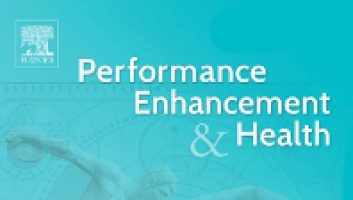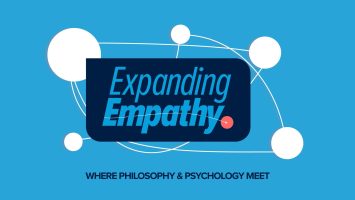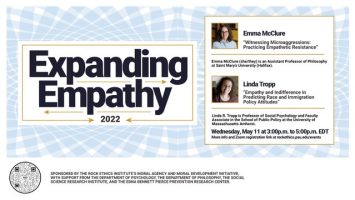Health
What are the ethical and policy implications of the systemic and institutional influences on health?
The Rock Ethics Institute’s ethics and health initiatives bring together an interdisciplinary group of scholars who share an interest in systemic and institutional influences on health, health policy, and healthcare, including relationships between individual and public health and the impact on health of food systems and the environment.
Sponsored Research
Principal Investigator:
Co-convened by Jonathan Marks and Francisco Javier Lopez Frias, the Rock Ethics Institute’s Ethics and Health Initiative brings together an interdisciplinary group of scholars who share an interest in the systemic and institutional influences on health, and in their ethical and policy implications.
Among the topics of interest to the group: the relationship between individual and public health; the influence of industry actors on health research and policy; the impact on health of food systems and the environment (whether local or global; both natural and built); the framing of exercise as medicine; and the social construction of gender.
The Rock Ethics Institute frequently partners with the Penn State Bioethics Program for this initiative. The Bioethics Program is directed by Jonathan Marks and assistant director Michele Mekel, an REI affiliate faculty member.
Principal Investigator:
Convened by Jeremy Engels (with Robert Roeser in Penn State’s College of Health and Human Development), the Institute’s Ready, Set, Pause Initiative Seeks to create a professional development workshop series to help build capacity and community among Penn State faculty who are interested in integrating contemplative practices including mindfulness and compassion training into their courses.
The workshops would provide the ability to create an enhanced experiential learning/contemplative practices component into coursework, renewing education in the Liberal Arts to include the experiential, practical learning of ethical skills (e.g., self-awareness, mindfulness, and compassion) alongside the declarative, verbal learning that characterizes much of a university classroom today. This approach to the development of intellectual and ethical values goes back millennia to the Greco-Roman and Sanskritic India traditions in which the acquisition of ethical know-how was seen as predicated on both habit learning and contemplation, as well as dialogue and debate.
Principal Investigator
According to the World Health Organization, antimicrobial resistance (AMR) is a serious threat to global public health and it requires action across all government sectors and society (WHO 2018). Antimicrobial resistance is argued to be putting at risk not only humans, but the world’s ability to achieve the United Nations Sustainable Development Goals (SDGs). Humans and agricultural animals situated in industrialized countries are considered large contributors to AMR due to overconsumption, with animal agriculture utilizing the most antibiotics—70 percent of all sales in the United States (Thorton 2017; Van Boeckel et al. 2015). Also contributing to AMR is inappropriate use of antibiotics. In Rwanda, due to lack of access to and appropriate regulation of pharmaceutical use for animals it is possible we find higher rates of AMR among farm located closer to urban populations (where there is increased access to antibiotic use) and among lower-income farmers who do not have enough money to purchase the appropriate amount of pharmaceuticals to treat sick animals. Our study seeks to better understand how antibiotic use on farms contributes to AMR. This study will be among the first of its kind to study (a) how farmers decide when to use antibiotics and (b) if the amount of antibiotic use contributes to AMR.
The Health Ethics, Ecology, and Policy (HEEP) initiative is an interdisciplinary and collaborative research project that bridges the humanities, social and natural sciences, and a variety of applied fields across several Penn State colleges, consolidating a university-wide research initiative within the Rock Ethics Institute.
It is driven by the recognition that health care policies and practices are embedded within political, economic, environmental, agricultural, and industrial contexts.
Meaningful advances in health research and public health policy must address this broader ecology on which our health depends, and to do so successfully requires interdisciplinary and collaborative research that bridges the humanities, social and natural sciences, and a variety of applied fields. Unifying this research is an ethical commitment to human health as a shared and guiding value.
Related News
Related Publications








